$59.00
AWAY FROM FREE SHIPPINGNICE. SHIPPING IS ON US!
$120.00
AWAY FROM FREE GIFTCHOOSE A FREE GIFT DURING CHECKOUT!
YOUR CART IS EMPTY. SHOP NOW.
Imagine coming home after a long, exhausting day, only to be greeted by a furry bundle of warmth and affection, purring and rubbing against your legs. Who can resist the charm and affection of a purring cat? Owning a cat brings a multitude of benefits that can enhance your life in various ways. Let's delve into some of the advantages of having a feline companion.
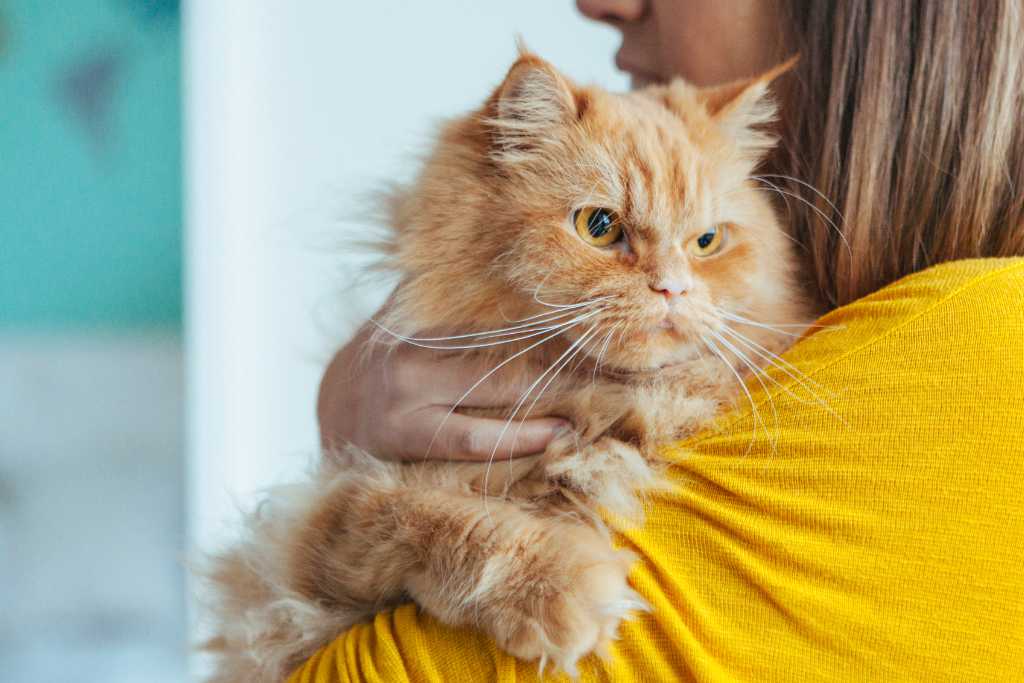
Unconditional love
Cats have a unique ability to form deep bonds with their owners. They offer unconditional love and acceptance, providing a source of companionship and emotional support. Having a cat by your side can alleviate feelings of loneliness and provide comfort during challenging times.
Stress reduction
The presence of a cat can have a calming effect on your overall well-being. Petting a cat and hearing their soothing purrs releases endorphins and reduces stress hormones, helping to lower blood pressure and promote relaxation.
Emotional health
Cats are known to boost mood and improve mental health. Interacting with a cat can increase serotonin and dopamine levels in the brain, which are neurotransmitters associated with feelings of happiness and pleasure. The playful nature of cats can also bring laughter and joy into your daily life.
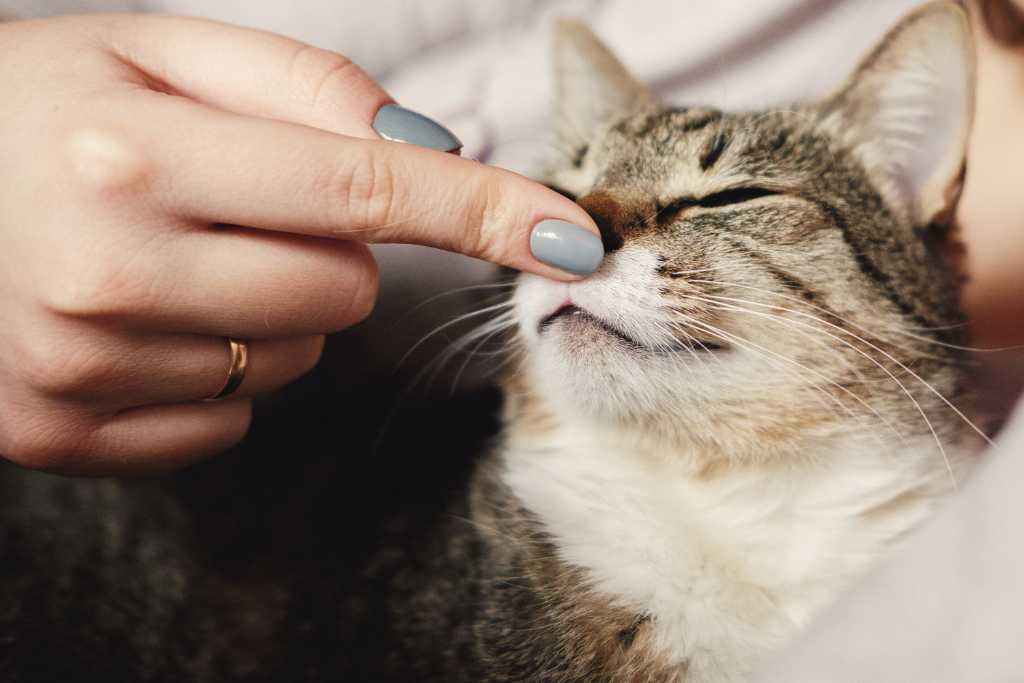
Lowered risk of heart disease
Studies have shown that owning a cat may reduce the risk of heart disease. The soothing presence of a cat and the act of petting can help lower blood pressure, decrease heart rate, and promote cardiovascular health.
Improved mental health
Cats can provide significant mental health benefits. They offer companionship and a sense of purpose, reducing symptoms of anxiety, depression, and loneliness. The responsibility of caring for a cat can also provide structure and routine, promoting a sense of stability.
Allergy and asthma prevention (for your kids!)
Contrary to popular belief, owning a cat from an early age may lower the risk of developing allergies and asthma in children. In 2002, the National Institutes of Health released a study that found children under a year old who were exposed to a cat to be less likely to develop all kinds of allergies. Exposure to cat dander and allergens early in life can potentially strengthen the immune system and reduce the likelihood of developing allergies later on.
Their purring may help to heal bones, tendons, and muscles
A cat purring is one of the most comforting sounds in the world. While cats may purr for various reasons, the sound has also been associated with a therapeutic healing ability on human bones and muscles. A cat's purr creates vibrations at a frequency of 20-140 HZ, and studies have shown that frequencies in the 18-35 HZ range have a positive effect on joint mobility after injury, scientists have begun talking about how the cat noise could help humans.
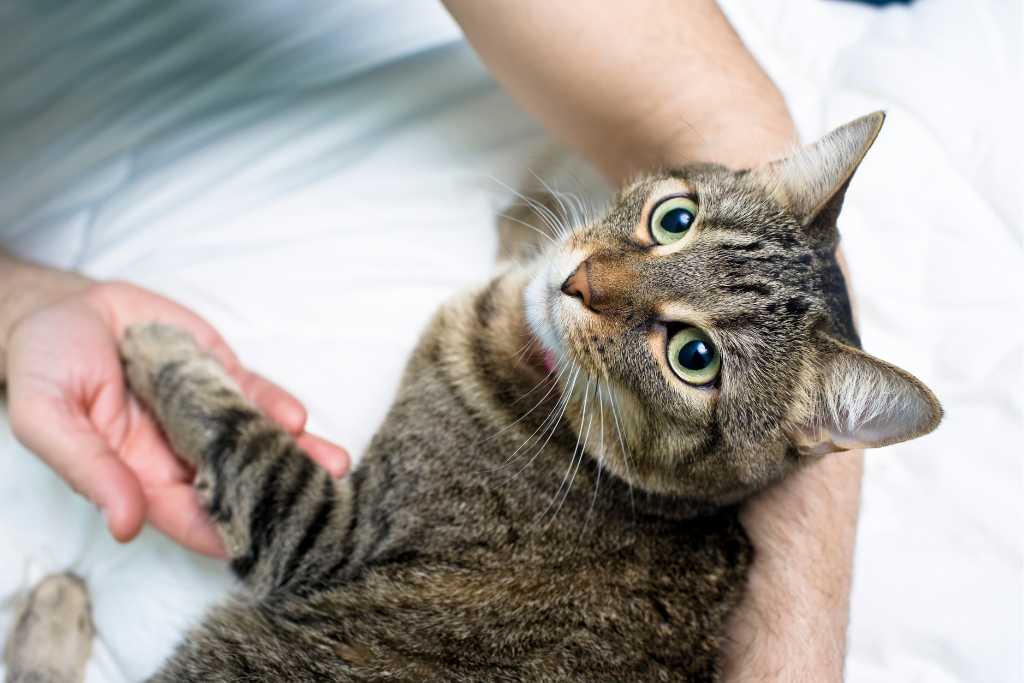
Playful companions
Cats are naturally curious and playful creatures. They provide endless entertainment with their acrobatic antics, chasing toys, and engaging in interactive play sessions. Their playful nature can bring laughter and joy into your daily routine. Even watching cat videos is good for you! A study of over 7,000 people by Indiana University Bloomington found that watching cat videos on the internet boosts viewers’ energy and positive emotions while decreasing negative feelings.
Bonding opportunities
Engaging in playtime with your cat not only provides mental stimulation for them but also fosters a stronger bond between you and your feline friend. Interactive play sessions can build trust, strengthen the human-animal bond, and create lasting memories.
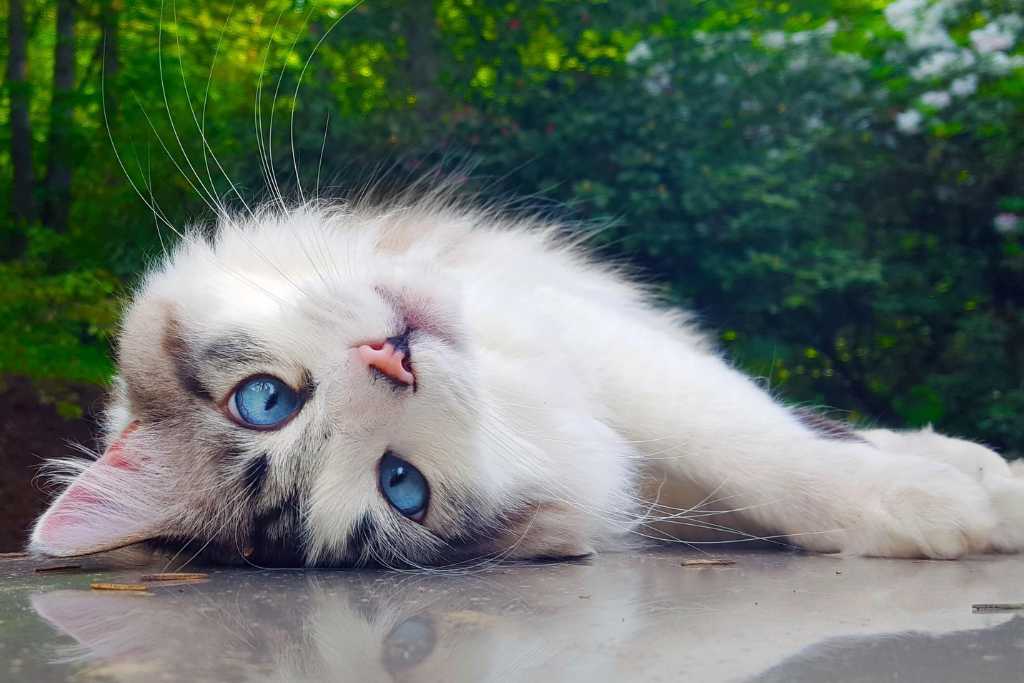
Self-sufficiency
Cats are independent animals that are generally lower maintenance compared to dogs. They are self-groomers and spend a significant amount of time cleaning themselves. This independence makes them suitable for individuals with busy lifestyles or those who prefer a pet that requires less hands-on care.
Reduced exercise demands
While cats need regular playtime and exercise, they are generally less demanding in terms of physical activity compared to dogs. Indoor cats can fulfil their exercise needs through interactive play sessions, making them suitable for individuals with limited mobility or living in smaller spaces.
Adaptability
Cats are adaptable creatures that can thrive in various living environments, including apartments, houses, or rural areas. Their compact size and ability to use litter boxes make them suitable for indoor living, but they can also adapt to outdoor access if the environment permits.
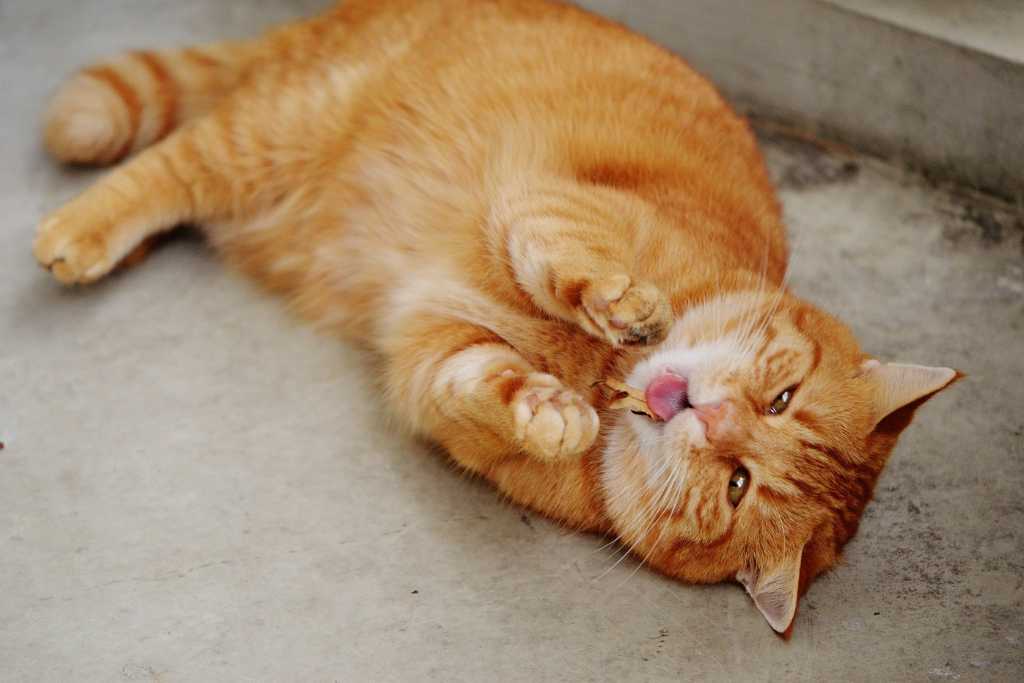
Before bringing a furry feline friend into your home, there are several important factors to consider. Remember, cats can live for 15 years or more, so it's important to be prepared for the long-term commitment and responsibilities that come with cat ownership. As such, do consider the following before making a decision.
Time commitment
Cats are relatively independent pets, but they still require time and attention. They need mental and physical stimulation to prevent boredom and maintain their well-being. You’ll need to allocate time each day to engage in interactive play sessions with your cat, using toys, feathers, or laser pointers to keep them active and entertained.
They’ll also need regular feeding and access to fresh water. Ensure you have a consistent feeding schedule and provide a balanced diet suitable for their age and health. Additionally, time must be allocated for grooming, which is essential for their well-being. Brushing their fur and trimming their nails regularly will help maintain their hygiene and prevent any discomfort.
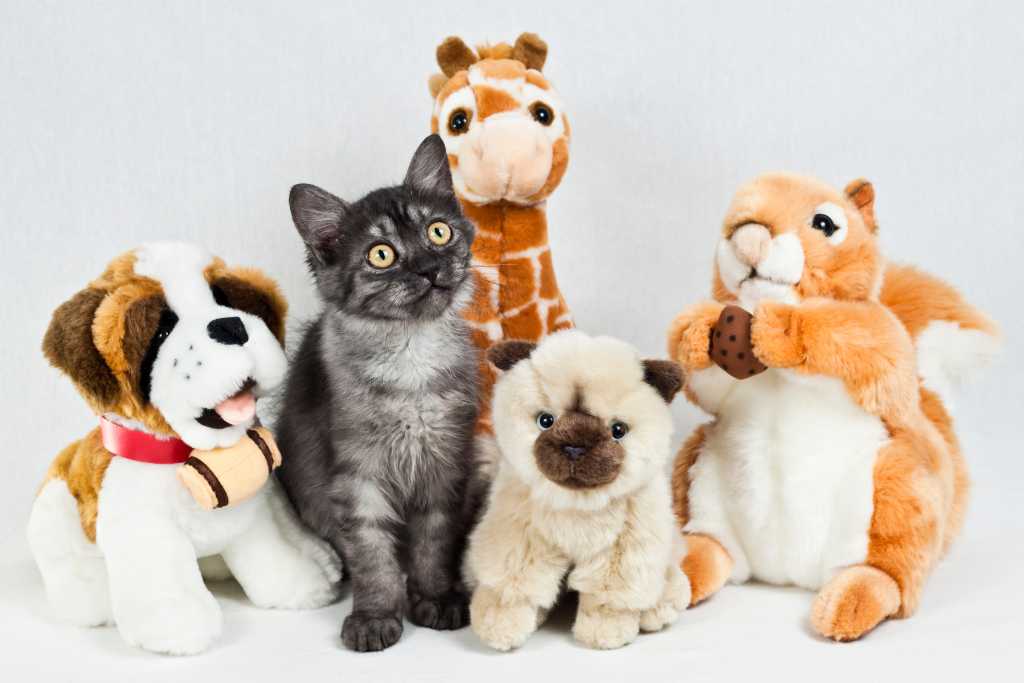
Financial responsibilities
Owning a cat comes with financial responsibilities. Cats require quality food to meet their nutritional needs. Do research appropriate diets and budget for regular purchases. Here are some good quality wet canned foods for your consideration. However, if in doubt, always ask for advice from your veterinarian.
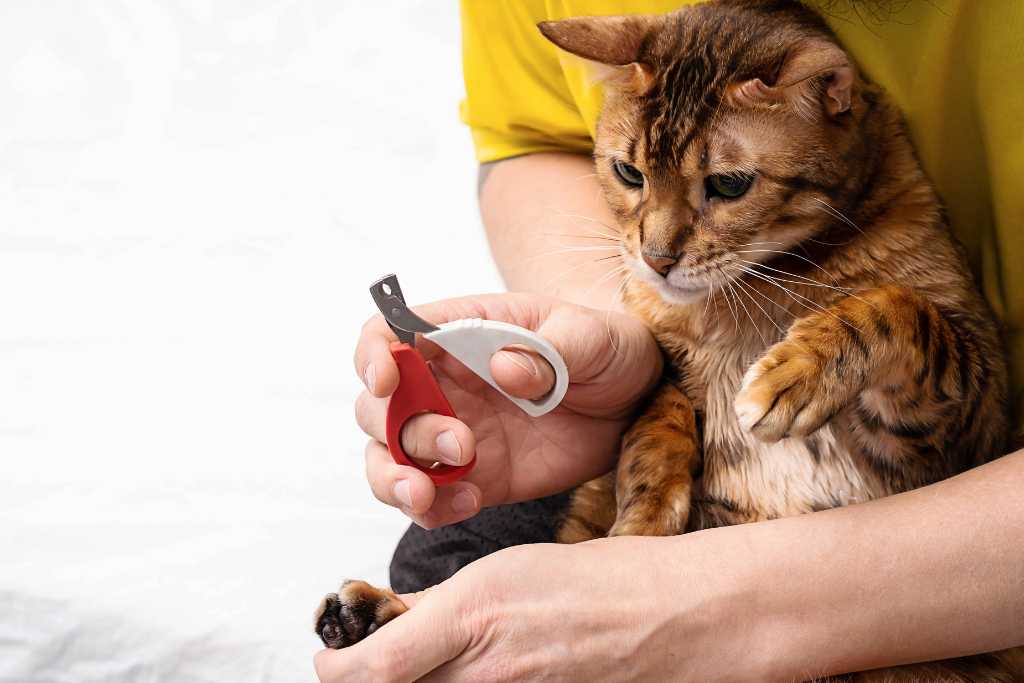
Veterinary care
Do not disregard regular veterinary check-ups. Routine veterinary check-ups, vaccinations, and preventive treatments are essential for a cat's well-being. Plan for routine medical expenses, including spaying/neutering, flea and tick prevention, and dental care. It's wise to set aside an emergency fund for unexpected veterinary costs.
Living situation
Evaluate your living space and ensure it can accommodate a cat comfortably. If you live in a small apartment, consider setting up vertical spaces like cat trees or shelves to provide climbing opportunities. If you're renting a property, review your lease agreement or consult with your landlord to ensure pets are allowed. Some rental properties have restrictions on pet ownership or require additional deposits. Finally, it's important to consider potential allergies or sensitivities before getting a cat. Some individuals may experience allergies or sensitivities to cat dander or saliva. If someone in your household has a known cat allergy or sensitivity, you may want to come to an agreement with this family member before bringing a cat home.
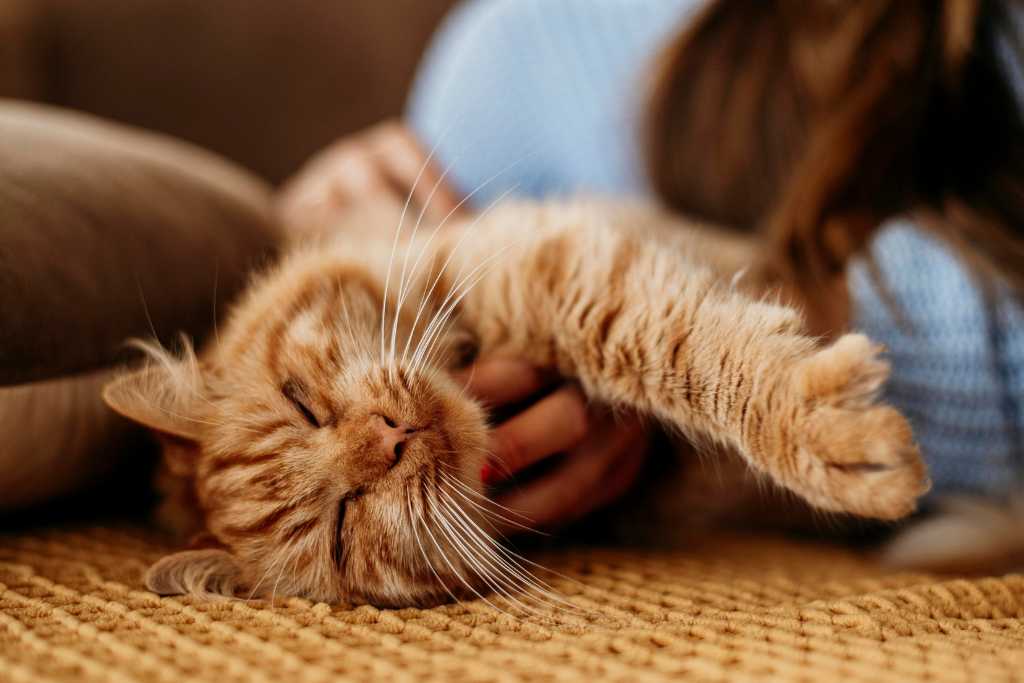
Owning a cat goes beyond having a furry companion. Cats bring a myriad of physical, emotional, and mental health benefits into your life. Having a cat by your side can bring comfort during difficult times, and alleviate feelings of loneliness. Their presence can truly uplift your spirits and enhance your emotional well-being. They have a remarkable way of reducing stress levels. Petting a cat and hearing their soothing purrs can create a calming effect, triggering the release of endorphins and reducing stress hormones in your body. This natural stress relief can help you unwind, relax, and find solace after a long day. Furthermore, a cat can give you a sense of purpose. Cats rely on their owners for care, feeding, and companionship. Taking responsibility for their well-being and meeting their needs can provide structure and routine in your life. This sense of purpose and caregiving can contribute to a more fulfilling and meaningful existence. Cats can enhance your overall well-being and bring joy into your life. So, open your heart and home to a cat, and experience the incredible journey of companionship, happiness, and improved health that they bring.

Comments will be approved before showing up.



